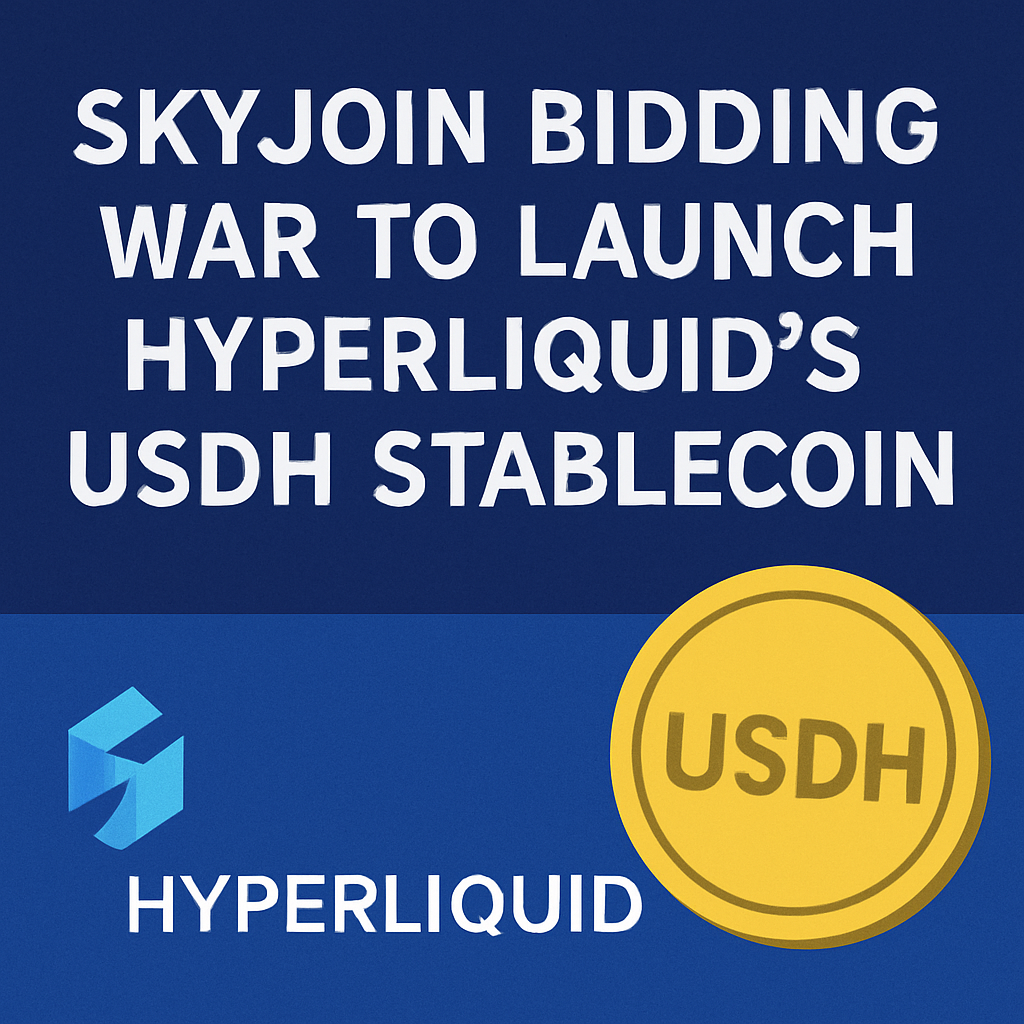Crypto protocol Sky, formerly known as MakerDAO, announced a detailed proposal to assist in the issuance and management of Hyperliquid’s upcoming USDH stablecoin.
Authored by co-founder Rune Christensen, the proposal outlines a mechanism to power USDH using Sky’s underlying USDS stablecoin architecture, promising a 4.85% yield across all issued tokens.
The Sky pitch emphasizes multichain interoperability via LayerZero integration, enabling USDH to function seamlessly across multiple blockchain networks while maintaining onchain composability.
In addition to yield advantages, Sky proposed compliance modules addressing the requirements of the GENIUS Act, ensuring that stablecoin holders would receive transparent audits and onchain proof of reserve holdings.
The proposal also includes a commitment of $25 million in funding to a dedicated developer ecosystem aimed at expanding DeFi applications on the Hyperliquid network and promoting liquidity pool growth.
Sky’s track record includes the creation of USDS, ranked among the top five dollar-backed tokens, and its autonomous risk management framework known for dynamic collateral adjustments.
Hyperliquid’s Discord call for bids attracted competing offers from Frax, Paxos, Native Markets, and Agora, highlighting the growing demand for robust stablecoin infrastructure within decentralized derivative exchanges.
Sky’s governance model would integrate community voting mechanisms, allowing tokenholders to adjust yield parameters and emergency stop features in response to market volatility.
Christensen’s post on X underscored the importance of community-driven development, stating that a decentralized stablecoin must align incentives among users, governors, and maintainers.
The Hyperliquid protocol plans to host a community vote following its next network upgrade, where validator nodes will select the winning bid based on metrics such as security audits, capital allocation, and protocol incentives.
Industry analysts note that the stablecoin space is becoming increasingly competitive, with total market cap of regulated dollar-pegged tokens surpassing $150 billion in early September.
Adoption of USDH by Hyperliquid could bolster onchain trading volumes, given Hyperliquid’s footprint in decentralized perpetual swaps and derivatives markets.
Market participants are watching closely as proposals refine risk parameters for undercollateralization events and onchain rebalancing protocols.
If approved, Sky’s USDH implementation would leverage existing liquidity pools like USDS-ETH and USDS-USDC, providing immediate depth for trading and margin accounts.
The move signals a broader trend of DeFi protocols consolidating under unified stablecoin standards to reduce fragmentation and enhance composability across ecosystems.
Sky’s bid highlights the role of governance tokens in securing network stability, with token reserves earmarked for emergency backstops in case of severe market dislocations.
With regulatory frameworks evolving rapidly, the ability to offer built-in compliance features may prove decisive in Hyperliquid’s selection process.
As the voting window approaches, community forums are debating yield sustainability models and the implications of onchain versus offchain collateral management.
The outcome of this bidding war may shape the next generation of decentralized finance infrastructure, influencing yield curves and risk profiles for algorithmic stablecoins.

Comments (0)